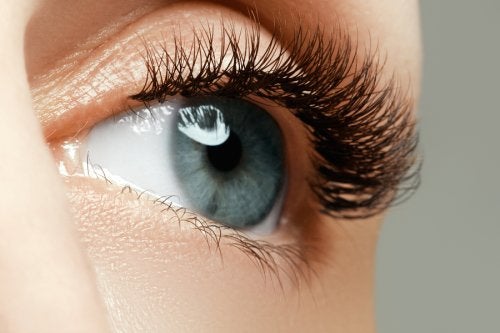-
Tips for Avoiding Eye Injuries in the Workplace
Your eyesight is precious, but if you’re like many people, you probably take it for granted. You should know that thousands of American workers suffer from vision loss and blindness every year because of preventable eye injuries sustained in the workplace. As an employee, you have the right to work in a reasonably safe and healthy environment. Consider scheduling a visit to an optical center near Chicago. You can ask an ophthalmologist about the potential eye injury risks at your workplace. You’ll also get some easy-to-follow eye care safety tips to protect your vision.
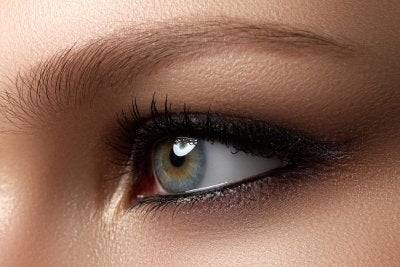
Identify the Risks of Eye Injuries
A couple of the main causes of eye injuries are airborne particles and chemical exposure. Eye penetration can be caused by objects falling off scaffolds, sparks from welding equipment, and blown sawdust. Other objects may swing into a worker’s eye, such as chains, ropes, and tree limbs. Similarly, chemical eye burns can cause permanent damage, especially if the caustic chemical penetrates to the deeper layers of the eye. Chemical eye injuries can be caused by a variety of substances, including potassium, lye, magnesium, ammonia, sulfuric acid, hydrochloric acid, plaster, and cement.
Reduce Hazards in the Workplace
Identifying the potential causes of eye injuries at your jobsite is the first step toward protecting yourself and other employees. Next, talk to your employer about the safety precautions recommended by your ophthalmologist. Your employer may need to add machine guards, safety screens, and caution flags. High-risk jobsites should have an emergency eyewash station that is fully stocked with sterile eyewash solution. Employers have a responsibility to train each worker to follow safety precautions and to know how to respond when an eye injury does occur.
Wear Protective Eyewear
Protective eyewear can prevent most of all eye injuries that occur in the workplace, but only if it’s worn consistently. Every employee should have access to the appropriate eyewear for a task. These include goggles, face shields, welding helmets, and safety glasses with side shields. All personal protective equipment in the workplace must be OSHA-compliant.
-
Glaucoma: How to Protect Your Vision
Glaucoma develops when the optic nerve sustains damage. Usually, glaucoma is the result of excessively high levels of intraocular pressure, or eye pressure. It develops slowly, which is why most people diagnosed with glaucoma are older adults. Although glaucoma is a major culprit of blindness in the U.S., there isn’t a cut-and-dry way to prevent it. However, you can talk to an ophthalmologist located in the Chicago area about your risk factors. By knowing your risk factors, your ophthalmologist can help you learn ways of protecting your eyes.

Visit Your Eye Doctor Regularly for Exams
When glaucoma is allowed to progress untreated, the vision loss is irreversible. Visit an optical center regularly to get your eyes checked. Your eye doctor will let you know how often you should schedule an exam, based on your individual risk factors. In general, glaucoma tests are recommended every 2 to 4 years before age 40. After age 40, you should be tested for glaucoma more frequently. Early detection of this vision problem allows for early treatment, which can slow the progression of vision loss.
Wear Protective Eyewear
Some people develop glaucoma not because of high intraocular pressure, but because of severe eye injuries that damage the optic nerve. These include injuries from caustic chemicals and flying projectiles. Ophthalmologists strongly recommend wearing protective eyewear whenever you’re doing a high-risk activity. These include using power equipment like chainsaws, mowing the lawn, doing carpentry work, and playing sports. Eye injuries can also occur from activities that aren’t generally seen as dangerous, such as using chemical cleaners in the kitchen.
Lead an Active Lifestyle
It’s thought that exercising regularly may help lower the pressure in the eyes . Researchers do not think that exercise has a lasting protective effect. In other words, exercise may only help if you continue to do it throughout your lifetime. Experts recommend moderate exercise at least 3 times per week. If you do yoga, try to avoid poses that invert your body. Headstands may increase your intraocular pressure.
-
How Intraocular Lenses Can Address Your Cataracts
Cataracts usually develop very slowly. These cloudy areas of the eye’s lens cause blurry vision, double vision, and sensitivity to light. When your symptoms start to interfere with your daily life, it’s time to visit a cataract surgeon near Chicago. During your cataract procedure, the cloudy lens will be removed and replaced with an intraocular lens (IOL). This lens is a flexible, synthetic lens that functions just like a natural, healthy lens would. It receives light and focuses it on the retina at the back of the eye. This allows your brain to receive images via the optic nerve.
Your cataract surgeon can walk you through the types of IOLs available to you. He or she might suggest an aspheric IOL, which mimics the natural variations in the curve of the eye’s lens. This could help you enjoy sharper vision. On the other hand, your ophthalmologist may recommend a toric IOL if you have nearsightedness, farsightedness, or astigmatism. This lets you see things clearly, without the blurriness that astigmatism causes.

-
Safeguarding Your Eyesight with Protective Eyewear
Many of the emergency visits to ophthalmology offices near Chicago are
the result of eye injuries. Power tools, lawn mowers, and sports activities are all common causes
of serious eye trauma. When you watch this featured video, you’ll
hear an ophthalmologist explain that about 90% of eye injuries could be
prevented simply by wearing protective eyewear.Talk to your eye doctor about the type of protective eyewear that’s
right for you. Some types are designed specifically to protect the eyes
of athletes, while others are better suited to yard work or a construction
site. If you typically wear eyeglasses instead of contact lenses, you
can get your protective goggles customized to your vision prescription
for greater convenience. -
What Patients Should Know About Cataract Surgery
Some people can’t even touch their eyeballs, so the prospect of cataract surgery near Chicago might seem a little scary at first. Do a little research about the process , and talk to your cataract surgeon so that you know what to expect. This can help you prepare, which can then make you more comfortable. You should know why cataract surgery is important, how to get yourself ready, and what you’ll experience when you meet with your eye doctor. Here’s a closer look at what patients should know about cataract surgery.
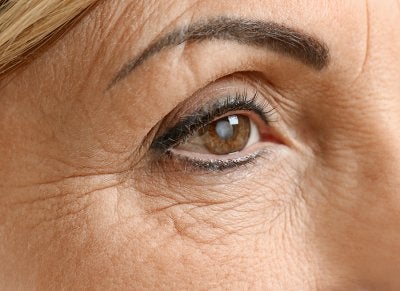
Reasons You Should Deal with Cataracts
Just like on a camera or a microscope, the lens of your eye helps you focus an image so that you can see it clearly. When you develop cataracts, however, the lens clouds up and becomes blurry. This can be distracting and takes away from your ability to appreciate a beautiful sight, so it may significantly impact your quality of life. There are steps you can take to gain your vision back, and your eye doctor may recommend cataract surgery. This procedure can restore clarity and color to your vision so you can enjoy life’s scenery the way you always have.
How to Prepare for Surgery
Before you get started with cataract surgery, your eye doctor will explain how intraocular lenses—or IOLs—work and what to expect when you go in for treatment. He or she will need to take measurements in order to create the right IOL, and you will need to tell your eye doctor about any medications that you’re currently taking. In some cases, you might have to refrain from taking these medications for a certain period of time.
What the Procedure Is Like
You might need to refrain from eating prior to cataract surgery. After numbing your eye, your doctor will carefully cut near the cornea to access the lens. The goal is to break down the cataract and replace the lens with an IOL. Your incisions should heal on their own, so you most likely won’t need stitches. After about a half hour in the recovery area, you can leave.
-
Keeping Your Eyes Safe Around Fireworks
Summer is the season for dazzling displays of fireworks, and the Fourth of July tends to be the pinnacle. If you want to be safe and keep your eye doctor in Chicago happy while you enjoy the view, be sure to practice proper eye care . Look at this video clip for tips on keeping your eyes safe around fireworks.
There’s a lot to love about the summertime, from days at the beach to ice cream cones in the backyard. For many families, it’s tradition to go out and see a fireworks show on the Fourth of July. Fireworks can be beautiful, but they’re equally bright. If the light gets to be too much, consider putting on a pair of sunglasses. You can also try to distance yourself from the spectacle to avoid such intense exposure. Whether you prefer sparklers, bottle rockets, or firecrackers, practice proper eye care.
-
Spotlight on Helen Keller Deaf-Blind Awareness Week 2017
There are people in the world who face extreme obstacles daily, and many of us can’t even imagine the struggles they go through. Helen Keller is an excellent example of someone who combatted serious handicaps in both deafness and blindness, and there is much to learn from her story. While a cataract surgeon or eye doctor in Chicago will have intimate knowledge of blindness, most people have a great deal to learn. Keep reading as we put the spotlight on Helen Keller Deaf-Blind Awareness Week 2017.
No matter how well our intentions may be, we can only focus our efforts on solving a problem after we’ve become aware of it. Most people over a certain age understand what deafness and blindness are, but there is much more to learn about these conditions. When you go about your daily life, you might not think about what your normal routine would be like without one or more of your senses. The purpose of Helen Keller Deaf-Blind Awareness Week is to take a week out of each year to discuss the presence of deaf-blindness in families within our communities so we can all widen our perspectives.
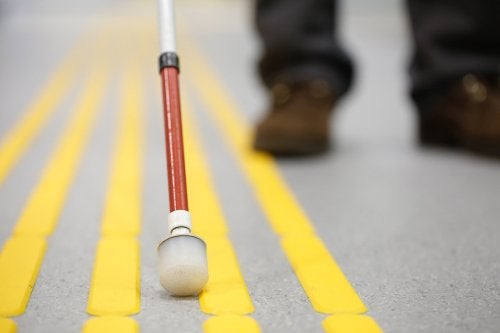
-
Get the Facts About Glaucoma
Too much pressure can be bad for your eyes, and it can lead to serious issues that affect your vision. Since vision loss can be permanent, you should practice excellent eye care and talk to your eye doctor in Chicago about how you can protect yourself. You might not notice your symptoms right away, and the disease can continue to progress if you don’t do anything about it. Open-angle glaucoma actually damages your optic nerve, which connects your eyes and brain. Feel free to read ahead if you would like to get the facts about glaucoma.
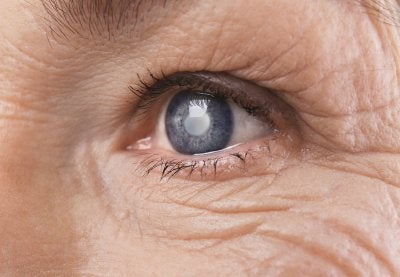
Symptoms Occur Slowly
Finding out that a given condition doesn’t always have symptoms might seem like a blessing, but sometimes it can do more harm than good. If you don’t notice anything different when you go about your daily life, you probably won’t be in a rush to meet with your eye doctor. When you first develop open-angle glaucoma, there won’t be any symptoms to notice. Everything will feel normal for a period of time, and then your peripheral vision will start to decline. If you don’t visit your eye doctor to create a treatment plan, you may lose your central vision over time as well.
Glaucoma Is Treatable, But Not Curable
Once you have lost some of your vision due to glaucoma, you can’t have it restored. This is why it’s extremely important that you visit your eye doctor for regular checkups. Since you won’t notice any symptoms of the disorder until your vision starts to go, preventative maintenance becomes even more essential. Your eye doctor can prescribe you medication to slow down the progression of the disease by lowering the pressure in your eyes. You can also talk to your eye doctor about surgery or laser trabeculoplasty.
Open-Angle Glaucoma Damages the Optic Nerve
One of the main factors involved in glaucoma is pressure. When fluid won’t properly drain from the eye, you may end up with glaucoma. This retention of fluid ultimately causes the buildup of pressure that damages your optical nerve, which can in turn result in loss of vision.
-
The Patient’s Guide to IOLs
If you’re having trouble with your vision, your eye doctor in Chicago might recommend the use of intraocular lenses , or IOLs. These intraocular implants can help patients deal with certain types of eye diseases, and in doing so they can improve their happiness and comfort. There are a few different kinds of IOLs, and you can discuss the different types with your ophthalmologist to find out which might be right for you. However, they are typically all made of the same material. Read ahead for a quick look at the patient’s guide to IOLs.
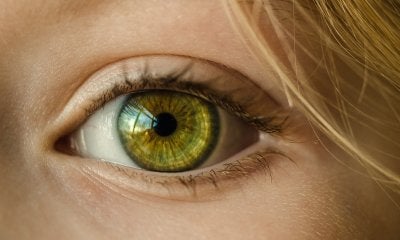
When IOLs Are Appropriate
The human eye has many different parts, from the pupils that adjust to let different amounts of light in, to the retinas in the back of the eyes where the images land. When it comes to focusing and visual acuity, you rely primarily on your lenses. Unfortunately, many peoples’ lenses gradually lose strength over time. If you have severe cataracts, then your eye doctor may remove your lens entirely. In this case, the ophthalmologist may replace your original lens with an IOL, which is just an artificial replacement lens. By replacing your cataract lens with a clear new one, you can alleviate issues like blurriness and dulled colors.
Types of IOLs
When you talk to your eye doctor about the possibility of an IOL, you will find that there are quite a few different kinds. A monofocal IOL tends to be the go-to choice after cataract surgery. People typically use these IOLs for distance and wear eye glasses for reading. Toric IOLs are helpful for those with astigmatism, and multifocal IOLs handle both distance and close-up vision. You can also talk to your eye doctor about accommodative IOLs, which can actually change shape after being placed.
What IOLs are Made of
Although there are different kinds of IOLs that you can use after cataract surgery, most of them are made of acrylic or silicone. Additionally, intraocular lenses may help protect your eyes from overexposure to ultraviolet rays. This can prevent additional damage to your eye health in the future.
-
The Truth About Glaucoma Symptoms
Some eye conditions are obvious, but others require the help of an eye doctor in Chicago to diagnose. Even those who practice excellent eye care may run into certain eye health issues, so it’s wise to maintain a working relationship with your ophthalmologist. Glaucoma is one eye condition that can compromise your vision and ultimately change your quality of life. You might not notice signs of the disorder on your own, but your professional will be able to detect its presence. Read on for the real truth about glaucoma symptoms.
Glaucoma symptoms are tricky because they don’t always exist. In fact, many people with glaucoma don’t experience any symptoms at all until the disease progresses. Those who do notice symptoms of this condition may experience blurred or distorted vision. As the disease progresses, you might experience vision loss as well. Angle-closure glaucoma is a rare kind that may cause nausea and eye pain. Since there is no cure for glaucoma and you might not actually experience symptoms, it’s extra important that you visit your eye doctor for screenings. Your ophthalmologist can check for signs of glaucoma, and he or she can devise a treatment plan if you appear to have the disease.
